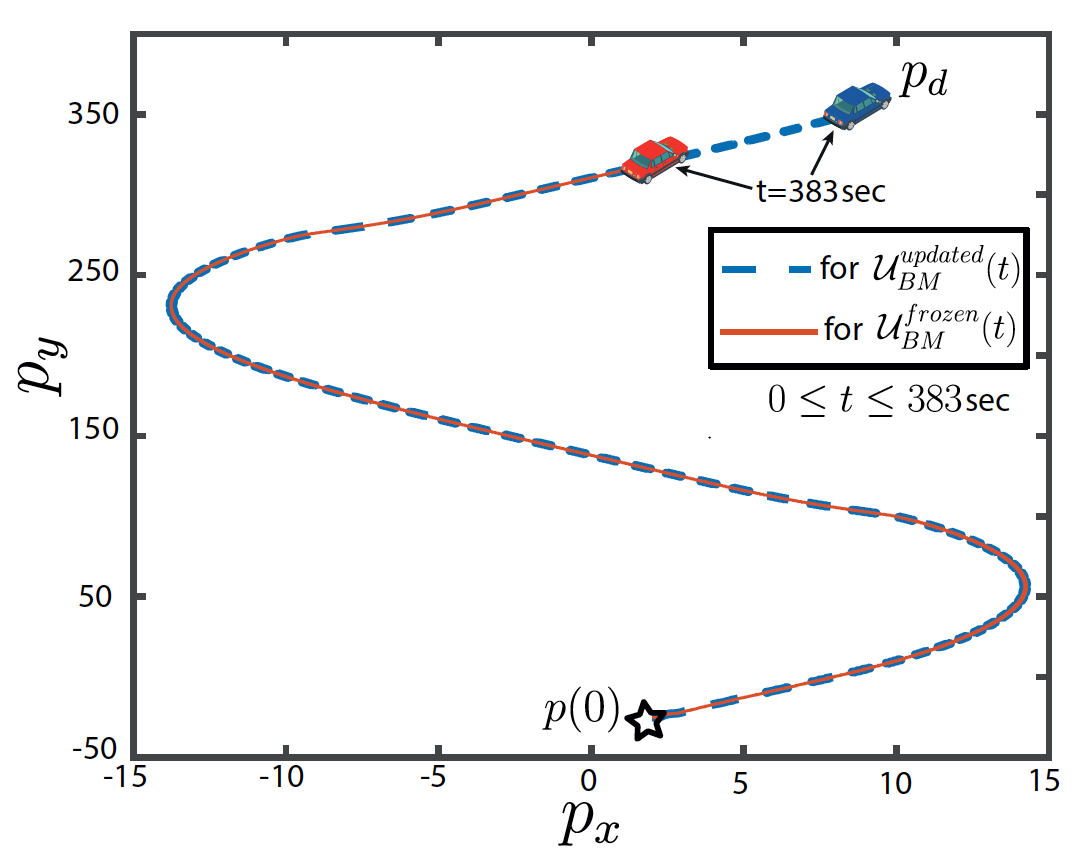
In this paper, we deal with the reference tracking control problem for Electric Unmanned Vehicles (EUV) equipped with batteries of limited energy capacity. We design a novel control architecture, equipped with a battery manager module, which is capable of avoiding energy shortage by appropriately imposing time-varying upper bounds on the vehicle’s maximum acceleration. In particular, we exploit some key properties of the Set-Theoretic Model Predictive Control (ST-MPC) paradigm to couple the reference tracking and the battery shortage problems. First, given a desired path, we off-line design a conservative maximum acceleration profile capable of assuring that the EUV will reach the desired target without incurring into a battery shortage along the path. Then, on-line, by following a receding horizon philosophy and by considering a cost function of interest, we show that the battery manager can improve the acceleration profile by using the current battery’s state-of-charge. Moreover, we show that the time-varying acceleration constraints imposed by the battery manager do not affect the recursive feasibility of the used ST-MPC tracking controller. Finally, a simulation example is presented to clarify and show the potential and features of the proposed control framework.
S. Savehshemshaki, W. Lucia, "A receding horizon battery shortage prevention control strategy for electric unmanned vehicles," IEEE Conference on Control Technology and Applications (CCTA), pp. 108-113, 2020